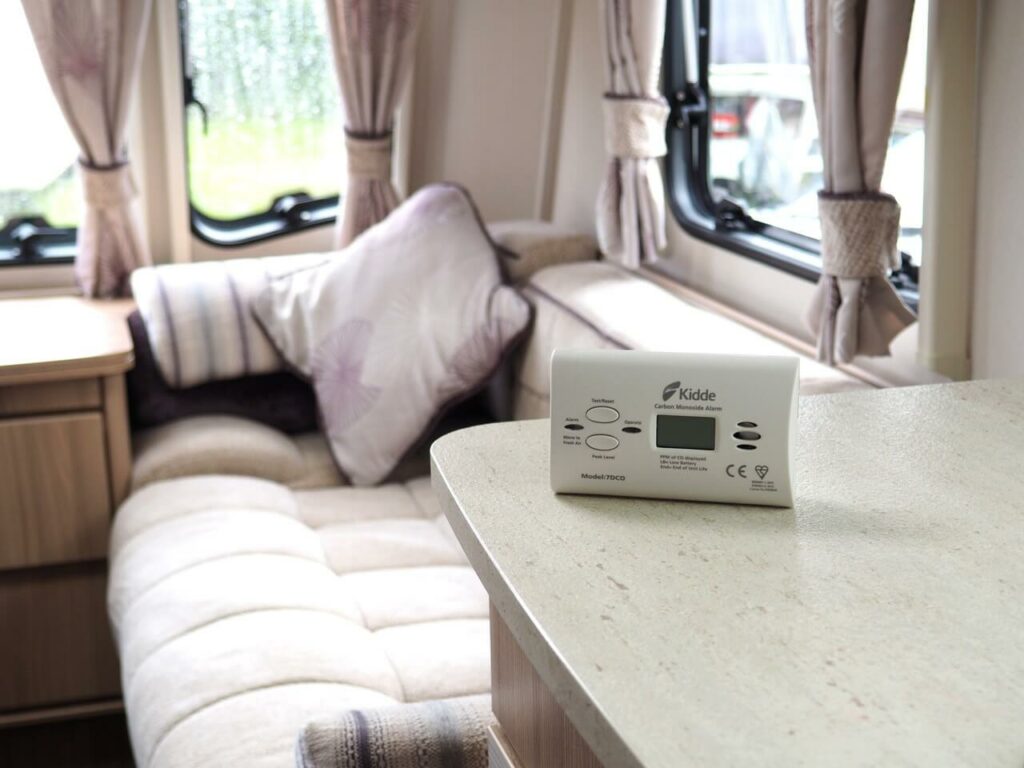Thursday 25th April 2024
Each year when camping or caravanning there are serious illnesses or even death from the effects of carbon monoxide poisoning. Most of these could have been prevented if the dangers of carbon monoxide (CO) had been more widely known and some simple preventative steps taken. In the UK around 50 people die and 200 people are hospitalised, while not all of these people will have been camping, the risks are significantly higher. As the gas is odourless and colourless there is no way to detect if the gas is present. The gas makes you drowsy and can make you unable to respond to other warning signs such as headaches and nausea.
Because tents and caravans are a confined space, the danger of carbon monoxide poisoning is greater. Therefore, having an audible CO alarm is an essential item to put on your packing list.

Sources of carbon monoxide poisoning when camping or caravanning
Gas or coal fired cooking appliances, such as BBQ’s, are sometimes bought inside tents or caravan awnings to provide warmth or to cook. Which can fill the space up quickly with carbon monoxide gas, a by-product when burning a fossil fuel. The gas then renders the occupants unconscious and death can occur as a result.
Carbon monoxide gas can be produced due to faulty, poorly maintained or improper installation of gas appliances in caravans. It is important to ensure fuel burning appliances fitted by a qualified installer. Solid fuel appliances must be maintained and serviced annually by a reputable, registered engineer.
Carbon monoxide detectors for camping and caravanning
If you have already fitted a CO detector, ensure that you carry out your pre-holiday safety checks. This should include checking or replacing the batteries and testing smoke, heat and CO alarms. It is also advisable to check when your alarms need replacing. Sensors in these types of alarms become less effective over time and will need to be replaced after 10 years.
Not all carbon monoxide alarms are suitable for use in caravans or motorhomes. Choosing a suitable alarm is important because if the CO alarm you have isn’t recommended for use in camping environments, you may not be alerted to dangerous levels of CO gas. Choose an alarm that is:
- Kitemarked to British Standard BS EN50291-2
- Certified for use in caravans
- Suitable for wall mounting
- Battery operated
- CE marked
